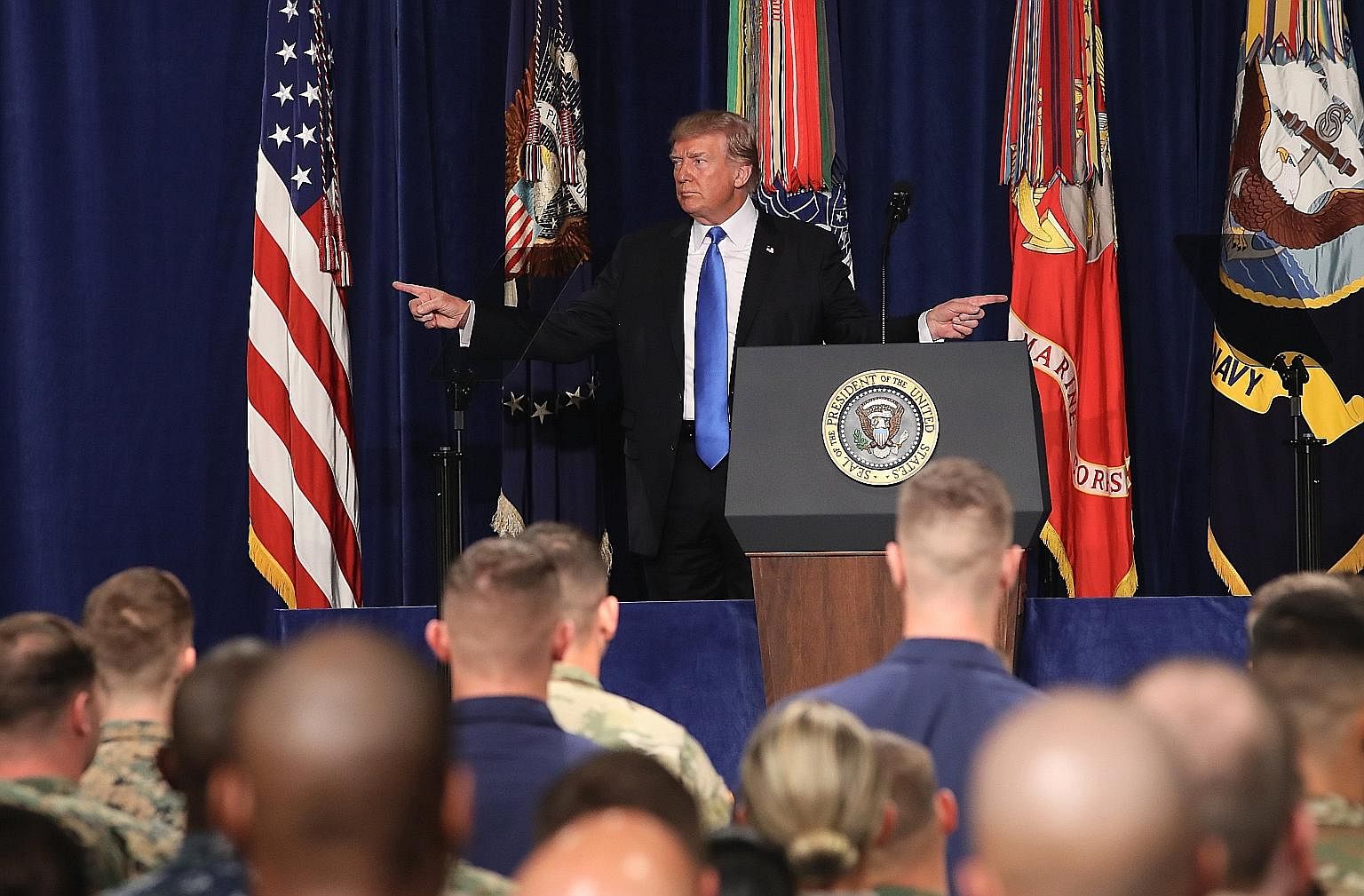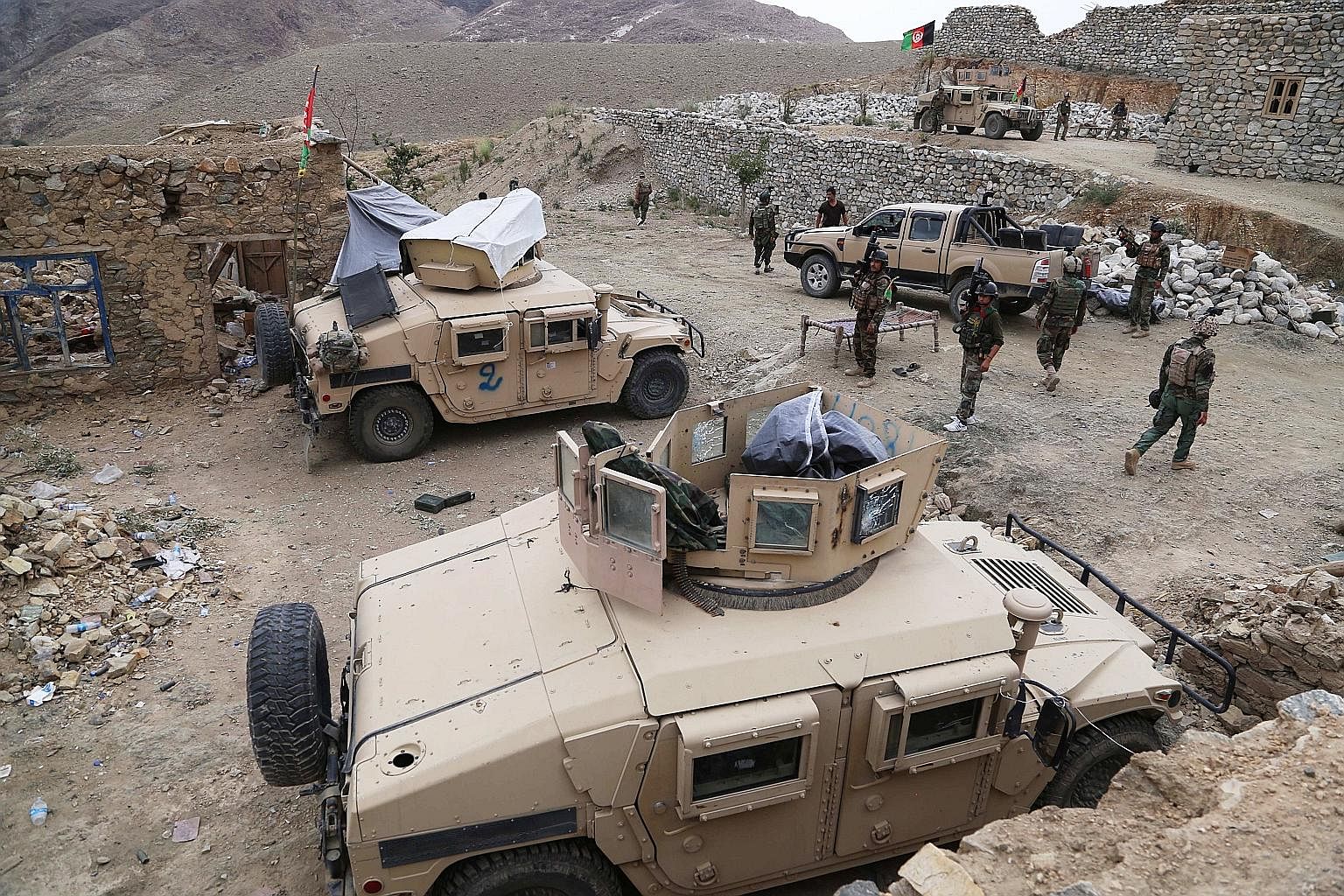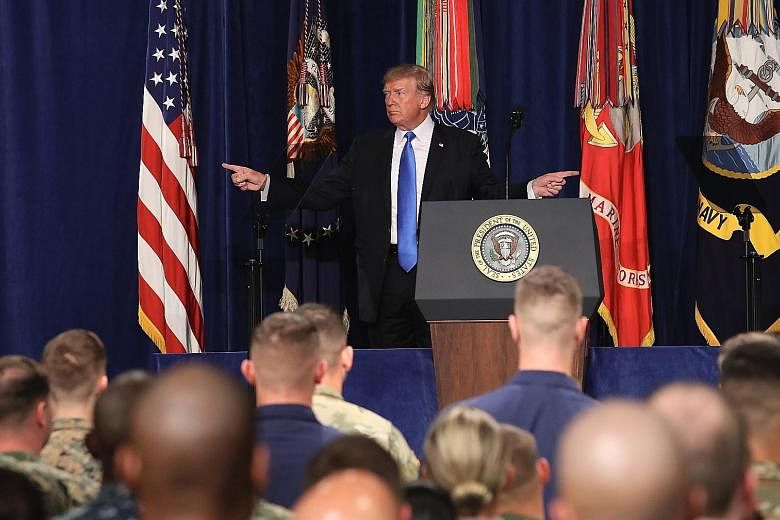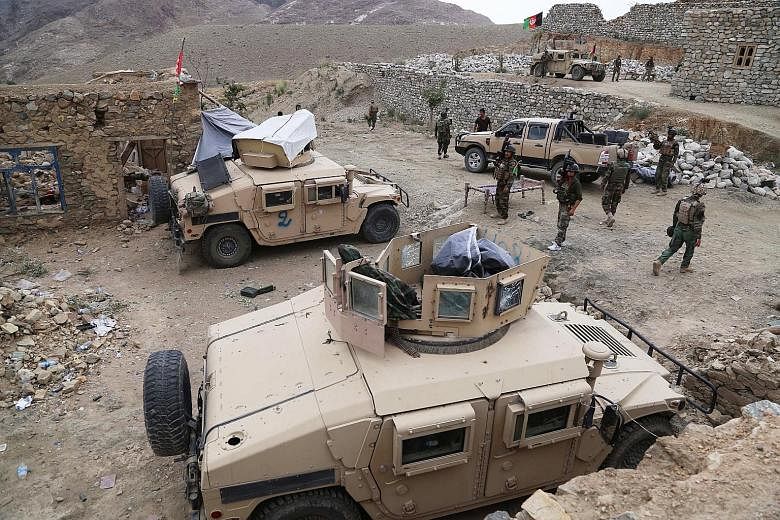United States President Donald Trump's renewed commitment to staying the course in Afghanistan has been widely welcomed, including by an Afghanistan government facing a resurgent Taleban which has gained control of roughly 40 per cent of the country.
But analysts say there are no military solutions to the US' longest war and that the best approach would be a diplomatic one involving all major regional players, including Iran, China and India.
The US is expected to send about 4,000 troops to join the roughly 8,400 in Afghanistan and beef up the country's military.
Mr Trump, however, served notice to Pakistan for giving safe haven to the Taleban, saying: "We can no longer be silent about Pakistan's safe havens.
"We have been paying Pakistan billions and billions of dollars. At the same time, they are housing the very terrorists that we are fighting," he said. "That will have to change and that will change immediately."
But the President also warned the Afghanistan government that American support was "not a blank cheque" and also called on India to invest more in Afghanistan.
Unlike previous road maps, the new US strategy sets no time limits on its involvement.


Analysts noted that it avoided the mistake former president Barack Obama made when he signalled a timeframe for the US' withdrawal. The move emboldened the Taleban, which the US drove out of power in 2001 for sheltering Osama bin Laden, who orchestrated the Sept 11, 2001, terror attacks on New York and Washington.
Mr Trump's strategy also won praise for putting Pakistan on notice. "The Americans have made clear they will not be fooled. They know what is happening on the ground," an Asian security analyst told The Straits Times.
Pakistan called for peace in Afghanistan and pledged to work to eliminate terrorism. A carefully worded statement from the Foreign Office called for "peace and stability in Afghanistan". It also "underlined Pakistan's continued desire to work with the international community to eliminate the menace of terrorism".
Some Pakistani politicians were generally critical of Mr Trump's remarks, with opposition figure Imran Khan tweeting: "So the US again blames Pak for its deeply flawed and failed Afghan policy stretching over a decade."
The Taleban mocked Mr Trump's strategy. "If America doesn't withdraw its troops from Afghanistan, soon Afghanistan will become another graveyard for this superpower in the 21st century," spokesman for the Taleban in Afghanistan Zabiullah Mujahid said.
Beijing defended close ally Pakistan. China's Foreign Ministry spokesman Hua Chunying said Pakistan "has made great sacrifices and contributions to fighting terrorism".
"The international community should fully affirm the efforts by Pakistan," she told a regular press briefing in Beijing.
But India yesterday welcomed Mr Trump's efforts to overcome the challenges facing Afghanistan and confront issues of safe havens.
"India shares these concerns and objectives," The Times of India quoted External Affairs spokesman Raveesh Kumar as saying.
At worst, additional troops will maintain the status quo with the Taleban, analysts say. At best, it will push back the militants to some degree, opening the door to negotiations from a position of strength.
"Continued US presence at current or near-current levels, while not enough to stabilise Afghanistan, can at least keep it from collapsing entirely," Ms Nisha Biswal, a former US assistant secretary of state for South and Central Asian Affairs who is now with the Washington consultancy Albright-Stonebridge Group, wrote in an e-mail. "The President's announcement will provide some reassurances to the region which feared a US vacuum," she said.
Analysts stressed that real stability depends on a wider regional diplomatic effort.
Mr Trump had "failed to address at all the important influence wielded by China, Russia, Turkey and Iran", Ms Biswal told The Straits Times.
And getting Pakistan to reduce its support for the Taleban requires its military leadership to shed its deep-seated fear of Indian encirclement via Afghanistan.
That fear will be fed if India raises developmental aid to Afghanistan, or if Afghan forces strike the Taleban inside Pakistan, across a border that is disputed in many places.
Pakistan, in response, could turn more to China, with which it has a close relationship.
"Beijing is far more critical to Afghanistan's stability than New Delhi," tweeted Mr Arif Rafiq, Fellow at the Washington-based Centre for Global Policy. "China, not India, shares a physical border (with) Afghanistan."
Mr Michael Kugelman, senior associate for South Asia at the Woodrow Wilson Centre, wrote in an e-mail: "More US troops can help enhance a training mission in Afghanistan that has actually made very real progress."
But he added: "So long as Pakistan continues to provide sanctuary to the Taleban leadership, the insurgency will endure.
"Figuring out the Pakistan problem goes hand in hand with figuring out the overall Afghanistan problem."



